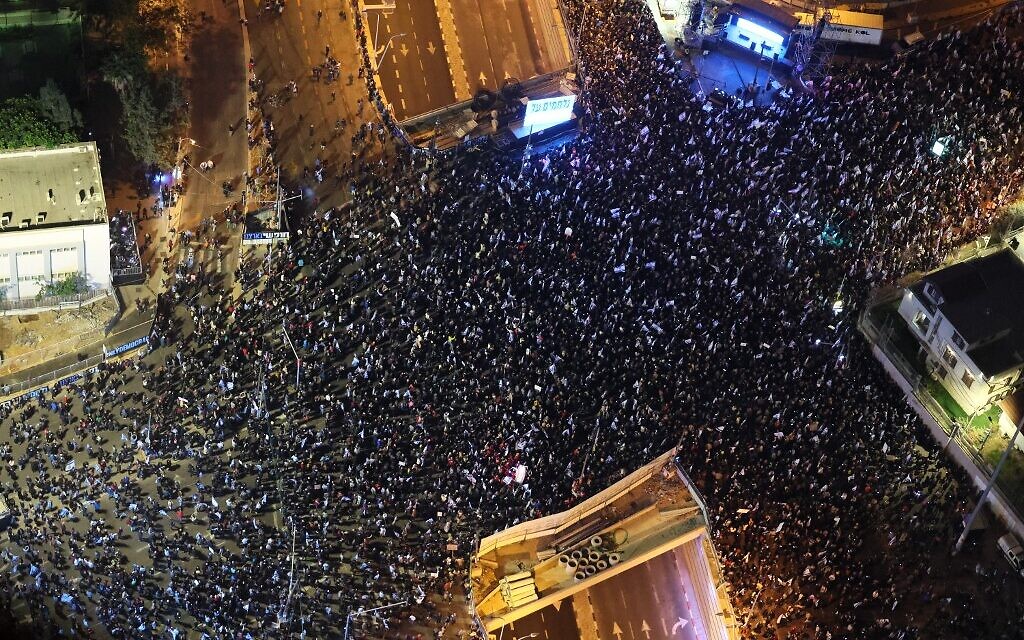Once again, an attack has striken Israel. At the entrance of Shabbat, a Palestinian from East Jerusalem shot at the faithful going out of a synagogue in Neve Yaakov, a Jewish neighbourhood built in East Jerusalem during the seventies, leaving behind him seven victims and several wounded, before being killed by the police. This attack, praised by the Hamas, is presented as a response to the action of the Israeli in the city of Jenin in the West Bank, against a cell of the Islamic Jihad that claimed the lives of nine Palestinians. As usual, the same scenario. On one side, the lack of hope for any change in their situation leads young Palestinians to join extremist movements that multiply assaults against Israelis ; on the other side, the new Israeli government continues and intensifies the actions of the army launched by the previous government against those groups, hoping to eradicate them. Already more than thirty Palestinians died since the start of this year, a macabre countdown to which we may add seven Israelis. In no case does the political impasse we have known for almost 15 years—the last serious Israeli-Palestinian negotiations, between Mahmoud Abbas and Ehud Olmert, took place in 2008—justify the use of terror by Palestinians. The events of the last thirty years have shown that terror has always resulted in the strengthening of extremists in both societies. But is not the stronger side supposed to offer a political perspective to the weaker one in order to break the cycle of violence ? How can we fail to note that among the Palestinians killed in Jenin were many children of Fatah officers who had made the bet of Oslo agreements ?
And we cannot expect any change with the new government in Jerusalem, with far-right leaders in the most sensitive positions such as Minister of National Security for Itamar Ben Gvir and head of civil authority in the occupied territories for Bezalel Smotritch. On the contrary, there is every reason to fear the outbreak of a new process of violence that could lead to a third Intifada.
Since the Israeli elections, the Democratic administration in Washington takes this risk seriously. It is probably one of the purposes of the visit in the region of Anthony Blinken, American Secretary of State, due to arrive this week, who intends to assess the intentions of Benjamin Netanyahu and of his government. Of course, this new attack won’t make those talks easier. Besides the situation in the territories and Israeli plans to expand or legalize settlements, many other particularly sensitive issues in the current international context will certainly be addressed during that visit prepared a few days ago in Jerusalem by Jake Sullivan, the U.S. National Security Advisor : the Iranian threat, the impasse in the negotiations, the future of Abraham Accords, the regional consequences of the war in Ukraine with the American demand for a greater Israeli involvement in helping Ukrainians… Not to mention the American fears facing the legislative changes planned by this government, which would tip Israel in the camp of illiberal democracies besides countries like Hungary and Poland, while for the Biden administration the defense of democracy is a major priority.
That issue is also very sensitive for American Jews, who are really worried by the presence of extremists and orthodox parties in this new Netanyahu government. The latter’s plans to change the conditions for obtaining the law of return by denying any validity to the conversions carried out by the reformed and liberal movements, majority in the United States, might cause a rift between the diaspora and Israel, especially when American Jews are faced with a significant increase in anti-Semitic attacks—according to ADL (Anti Defamation League), they rose from 1000 in 2016 to 2000 today.
Many fears and questions arise now in the relationships between that new Israeli government, the current administration in Washington and American Jews. We will address these questions during the meeting organized on February 8th with La Paix Maintenant.
The Israeli civil society has begun to mobilize against the plans of this government. Petitions follow one another : school principals, jurists and lawyers, former presidents of the Supreme Court, former generals and members of the country’s security apparatus, businessmen and economists… These last four weeks, every saturday evening several tens of thousands of demonstrators meet in the big cities of the country in order to express their refusal to see their country change regime. In diaspora also, expressions of support for this protest movement are multiplying. We have launched a new JCall appeal that you may still sign on our website. Other projects are being developed and we will soon be back to keep you informed.
David Chemla






